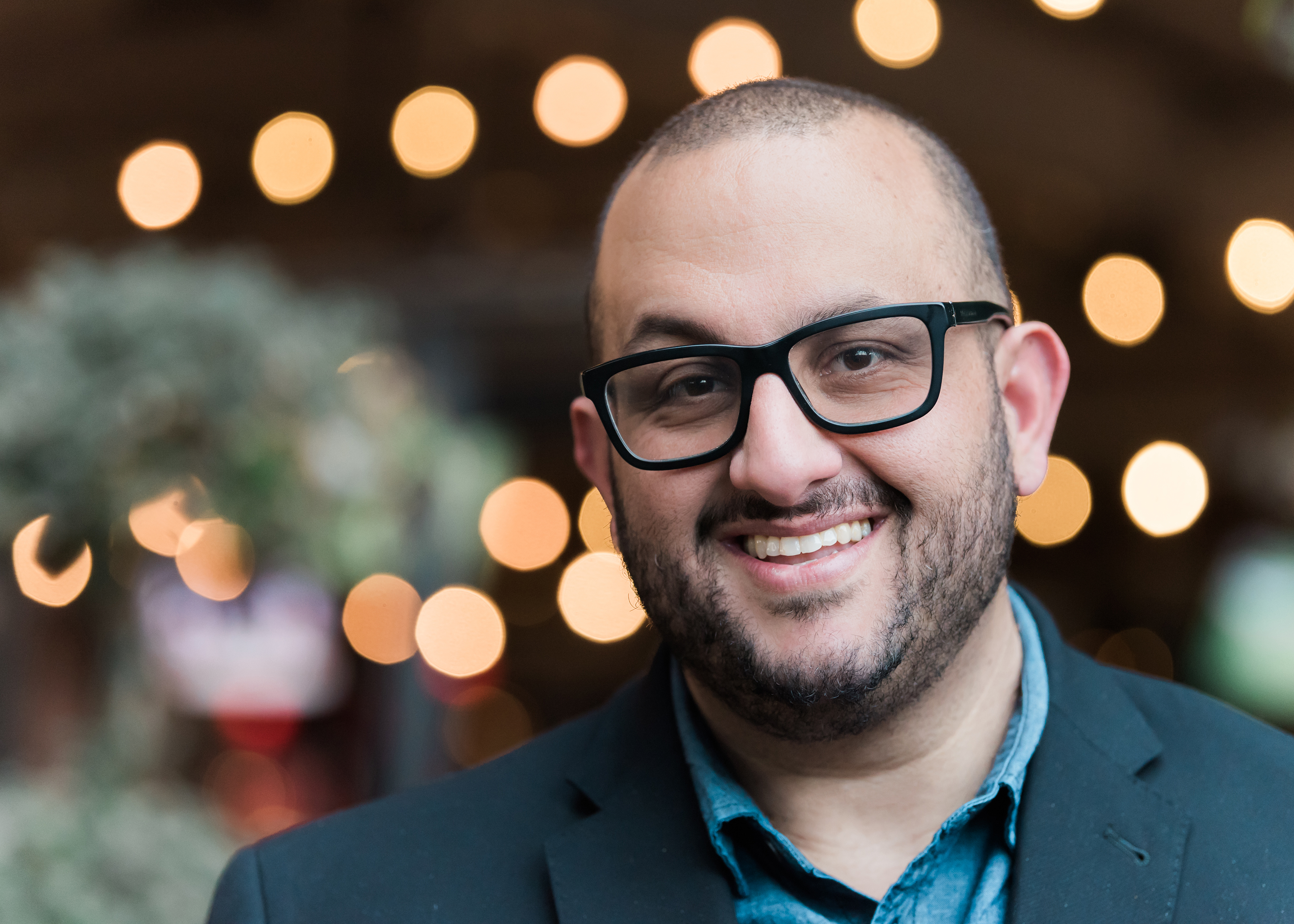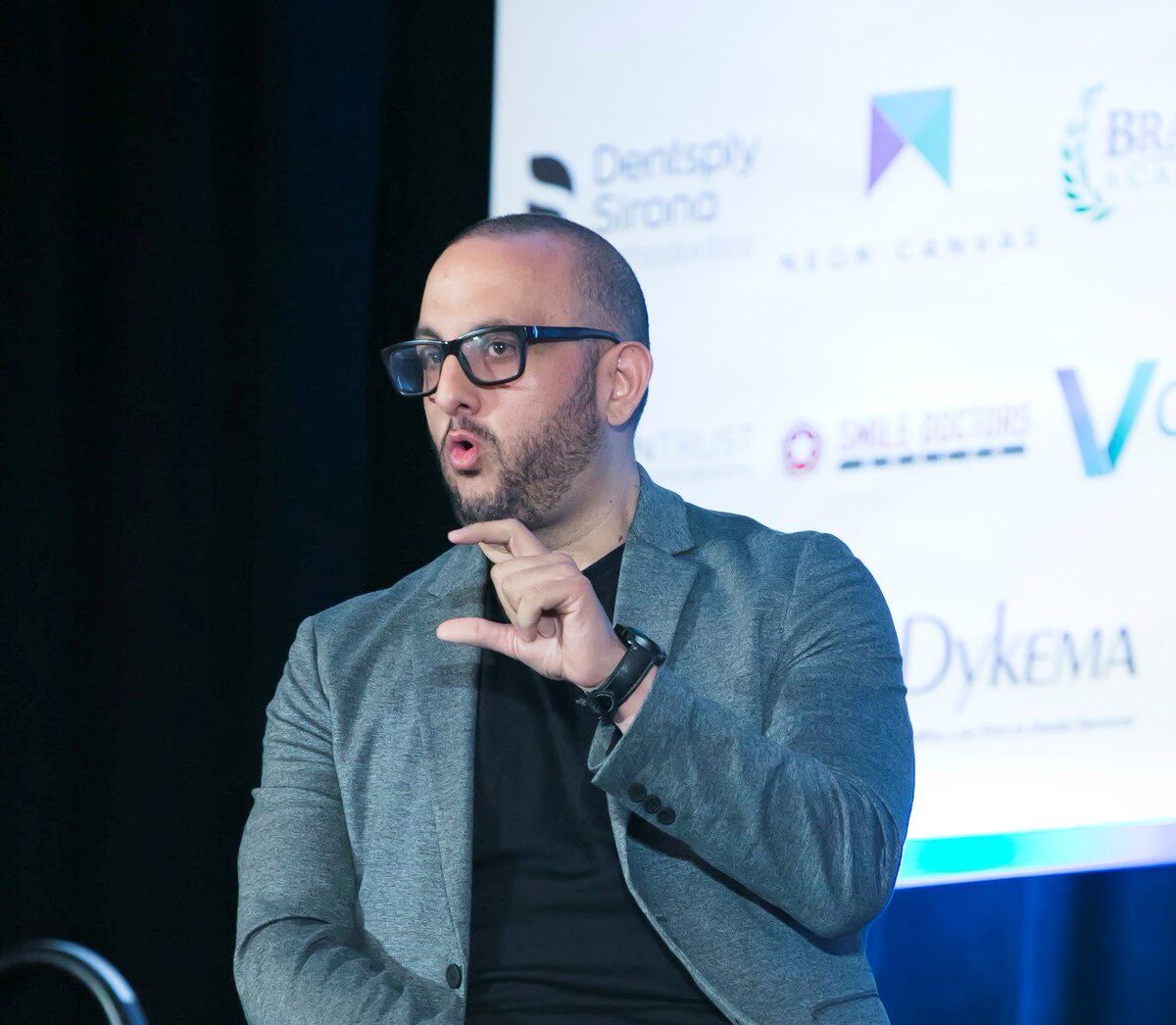
What does it take to have a great business partnership? There are certainly plenty of bad ones.
I sat down with Darius Mirshahzadeh, CEO and Ali Vafai, President of The Money Source (TMS) to talk about what I’ve experienced as one of the most synergistic and well-oiled business partnerships I’ve known over the past two decades of working in the small and mid-market space.
Founded in 1997, with a mission to Grow Happiness, TMS is a fast-growing fintech company that provides products, technology, speed of service and a unique customer experience to borrowers, clients and team members in their pursuit of happiness. Darius and Ali, along Stavros Papastavrou, Founder and Chair and Mike Mirshahzadeh, Chief Revenue Officer, and Darius’ twin brother, make up the ownership of TMS.
Know Your Strengths and Be Honest

Darius starts off our conversation. “I know my partner. I know what his strengths are, and we have good chemistry. He never takes anything personally and doesn’t mind telling me when I’m being an idiot.”
“At the 10,000’ level, we have a mutual respect for each other,” Ali adds, “and like Darius says we know each other’s strengths, although we do have some overlap there. We really do have good chemistry, even finishing each other’s sentences. When it comes to a topic that requires Darius’ strengths, I back off and he defers to me on mine. We keep to our swim lanes.”
Ali pauses, then adds. “Behind the scenes we do talk – openly – without a fear of offending each other or hurting each other’s feelings. If you have to watch what you say, it won’t work. I’m able to be me. I trust him and we never blame. Even if one of us makes a bad decision, we don’t blame.”
I asked about the overlap in strengths which Ali mentioned. Since day one TMS has used the Gallup Strengths Finder assessment to help them better manage their staff and the leadership team is no exception to that rule. Darius chimes in. “First, we’re both smart, intellectually curious and use logic to make decisions. As you know we’re super analytical and very data-dependent. We don’t need to be right, but we do like to win. Although Ali’s right 90% of the time,” Darius shares with a grin. “And if we both agree on a topic, there’s a 99% chance we’re right,” he adds.

“Second,” continues Darius, “we’re both brutally honest and truthful with each other. And third, we both love business and building something bigger than ourselves.”
Ali adds, “People see Darius as super friendly, warm and charismatic but he’s also intellectually curious and leaves his emotions off of the table and uses data to make decisions. We’re both economic animals. We love looking at the numbers.”
A Shared History
Ironically, Ali and Darius started off as competitors in the loan business back in 2006. “I recruited a bunch of sales people from him,” Darius shares.
“They were not the best,” quips Ali with a grin.
“Then I became his customer,” Darius continues laughing, “He pretended he didn’t know me.”
A few years later, Ali and Darius happened to both be working at Pacific Union where Darius reported to Ali, who was the President. Darius called Ali up and said, “Hey Ali, I’ve never had a boss. Let’s act like partners!”
Their relationship grew in the process and they got very close.
So much so that a few years later, in March of 2013, when they were both at home, putting together deals, Darius had an idea. “Ali was working correspondent. I was working wholesale. We would meet for lunch every few weeks,” Darius shares. “We were bored out of our minds.” Darius was on a plane looking for deals and trying to micromanage. “Not very well,” Ali adds. “I came back,” Darius continues, “and said ‘I got this deal in the works that we should do together with my brother.’”
“No way I would do that,” Ali told him. “I just left a partnership with 3 brothers.”
Darius stayed up two nights drafting an agreement, which he shared with Ali.
Ali was taken aback. “I thought, this guy is serious about this, and after reviewing half the terms which were very generous, I decided to partner with them without the agreement in place.”
A Mutual Respect
Eventually, they sealed the deal and are still together six years later. In the process they’ve been through a lot, growing the business to over 700 employees. In 2018 they decided to sell off wholesale and retail, focusing on being a national Correspondent investor, Servicer and Subservicer, licensed in all 50 states.

“Industry profitability is at a 12-year low. It’s a tough environment and we’ve needed to get hyper-focused,” Darius states, sharing the reasoning behind their decision. “We’ve got a great Leadership Team in place and are working very hard to maintain processes and Execution systems that have helped us to be successful like our Level 10’s and Strategics and that’s certainly helping.”
And their partnership has weathered the ups and downs and is still healthy and strong in spite of the turbulence in their industry.
“It goes back to our intellectual curiosity and mutual respect for each other. “Ali reads a lot and I do my own data exploration,” shares Darius. “We’re always asking each other, ‘hey what do you think about this economic trend?’ and working to stay ahead of the game.”
What’s next?
“We’re still trying to figure it out,” says Ali. “The book hasn’t ended. We’ve experimented over the past few years with bringing in competent managers, learning from them and watching them grow. We used Top Grading and Scorecards and other Talent “best practices”.
Darius chimes in. “Despite having the very best and competent managers, we made the strategic decision to get out of certain business channels because the market was so brutal for the last year and a half in our industry.”
“No matter how good you or your team are, macroeconomic and industry trends will make you look like a genius or an average Joe,” Ali says. “When the trends are against you, you have to reduce your bet sizes – and being in the game is more important than making a big bet, getting it wrong and getting wiped out.”
“Having a good Execution model, a good way to challenge Strategy and a good way to execute against that Strategy are important. And Culture is the glue that keeps your Strategy and Execution together,” Darius states simply.
Ali echoes Darius and then adds for good measure, “If you can’t spend one day out of 90 days – really 64 working days – 1 ½ percent of your time during the Quarter on your Quarterly Strategic Meeting, you’re spinning your wheels the other 98 ½ percent of the time.”
We’ll see how the story unfolds, but I’m looking forward to the next chapter!
Tags: Business advice for the mid-market, Overcoming small business challenges, Small Business Strategy